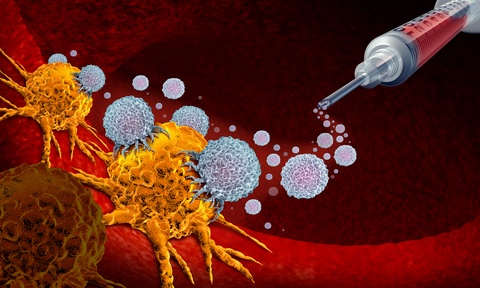Immunotherapy as Effective Second-Line Treatment for Mesothelioma

A study from Taiwan has identified an effective second-line treatment for malignant pleural mesothelioma.
When a patient is diagnosed with mesothelioma and begins treatment, the first treatment is called the “first-line treatment.” If that treatment does not work or stops working, a “second-line treatment” is given to the patient.
For mesothelioma, treatment usually consists of surgery, chemotherapy, and radiation. The exact treatment plan will depend on many factors. Doctors will consider the type of mesothelioma, the condition of the patient, and how much the cancer has spread.
A common first-line treatment for mesothelioma patients is chemotherapy with drugs called pemetrexed and cisplatin. When this treatment works properly, it stops cancer cells from growing and multiplying. It is for patients whose disease is either inoperable or who are not candidates for surgery.
When pemetrexed and cisplatin fail to stop cancer growth, the second-line treatment is hotly debated in the medical world. There is ongoing research into other chemotherapy drugs, immunotherapy, and different anti-cancer treatments.
The researchers in this study from the journal Cancers aimed to identify a good second-line treatment for malignant pleural mesothelioma.
Immunotherapy as Second-Line Treatment
The researchers looked at data they found from 11 published studies. These studies compared different types of second-line treatments. The researchers looked at the overall survival rates of these treatments.
An immunotherapy treatment with nivolumab alone or with ipilimumab had the best survival rates.
Immunotherapy is a type of cancer treatment that uses the patient’s immune system to fight their cancer. The drugs nivolumab and ipilimumab are called immune checkpoint inhibitors. One of these drugs increases the number of cancer-killing immune cells in a mesothelioma tumor. The other drug alters mesothelioma cells to make them more susceptible to attack.
Research like this can help doctors to make treatment decisions for patients that will help them recover from cancer. This is especially important for mesothelioma, which can be aggressive and hard to treat.
Source
Tsai YC, Chen HL, Lee TH, et al. Salvage Therapy for Relapsed Malignant Pleural Mesothelioma: A Systematic Review and Network Meta-Analysis. Cancers (Basel). 2021;14(1):182. Published 2021 Dec 30. doi:10.3390/cancers14010182





